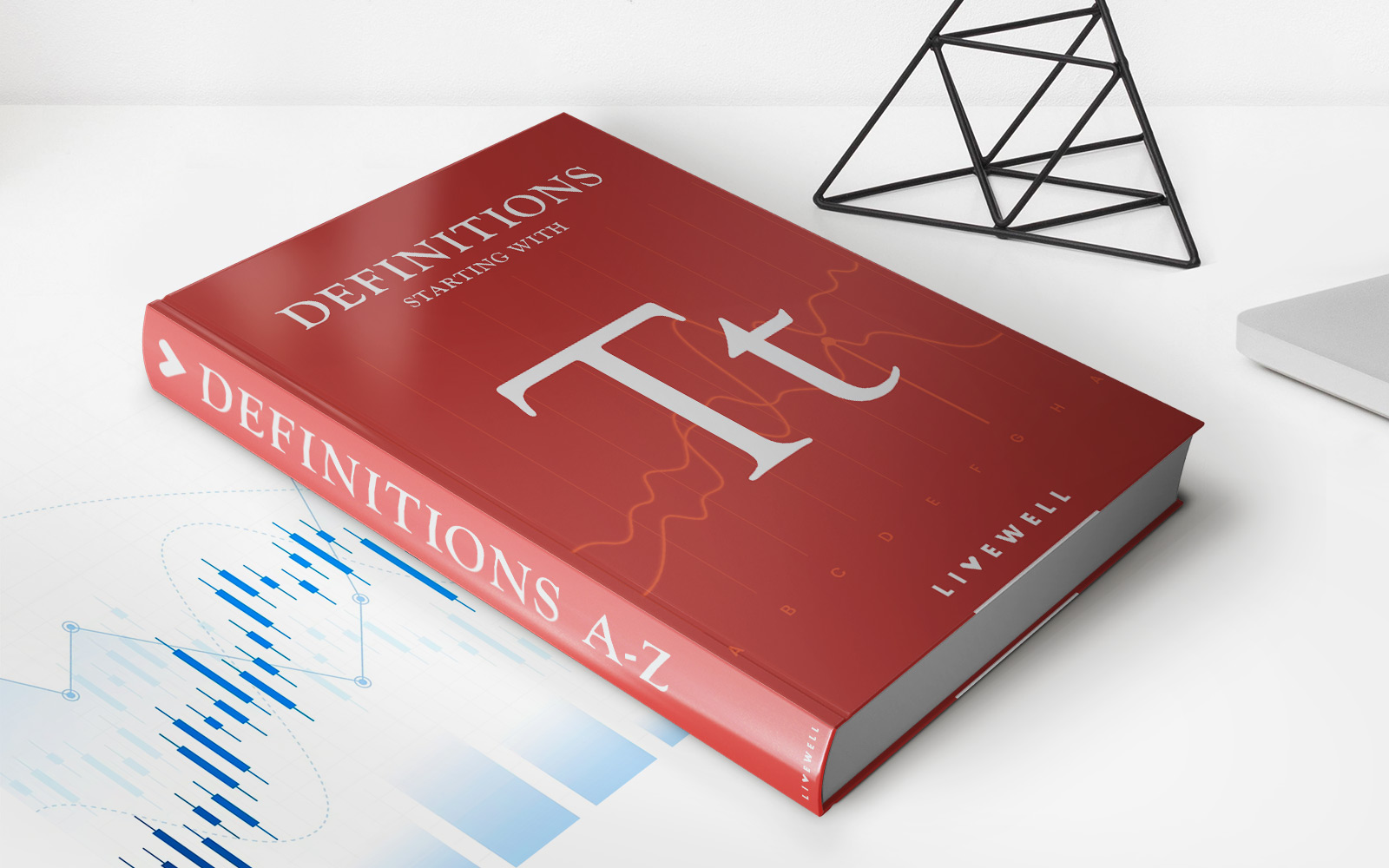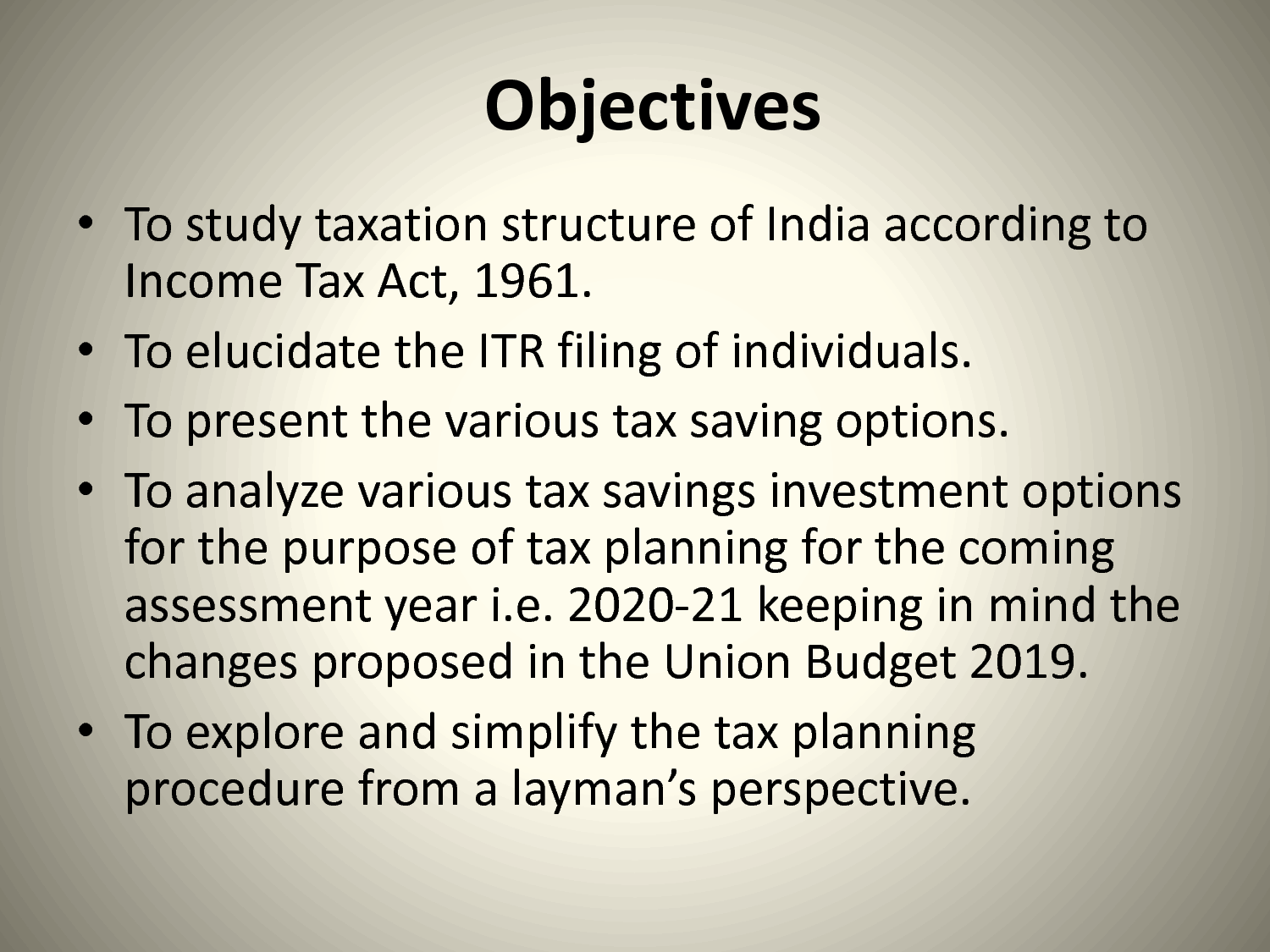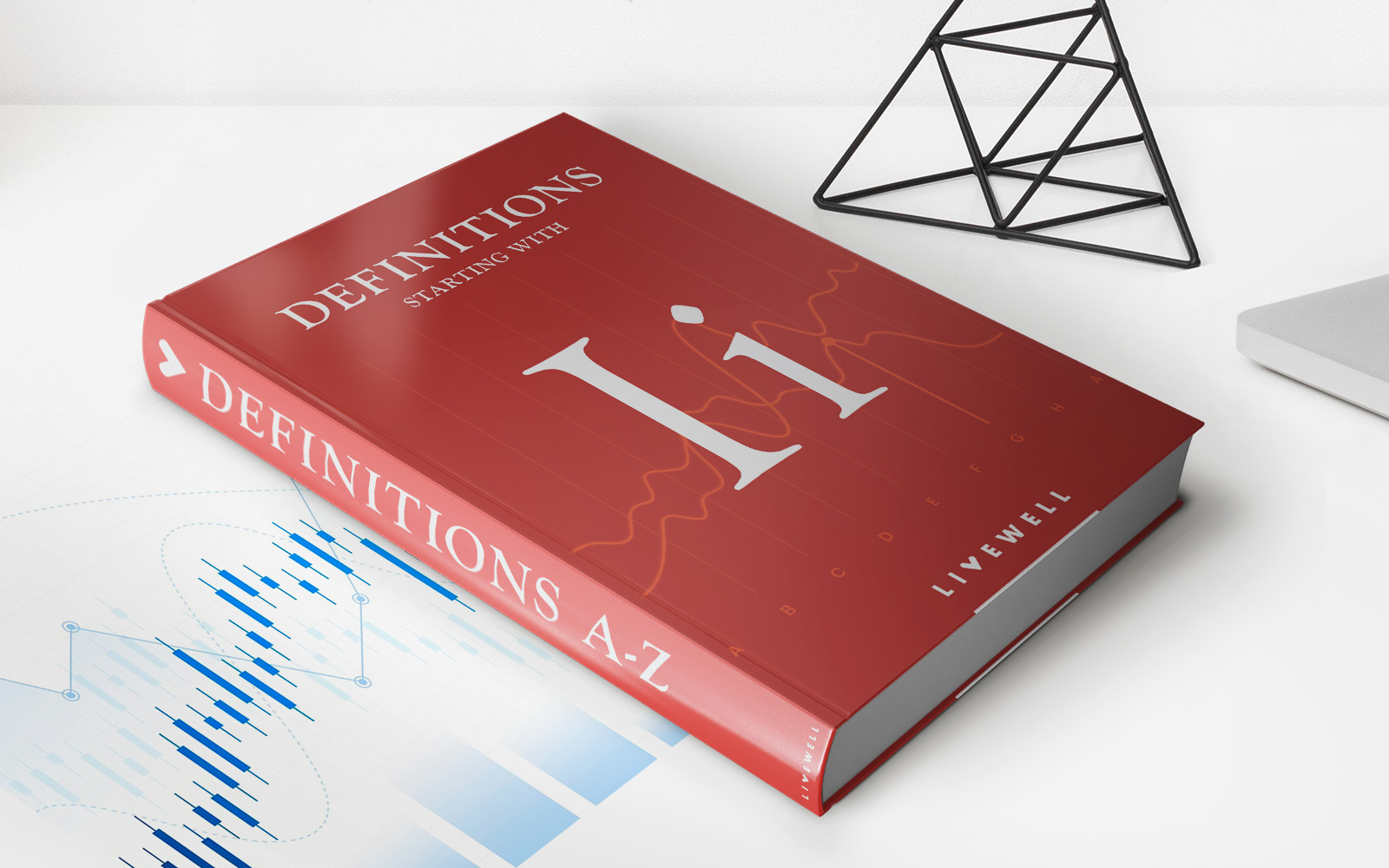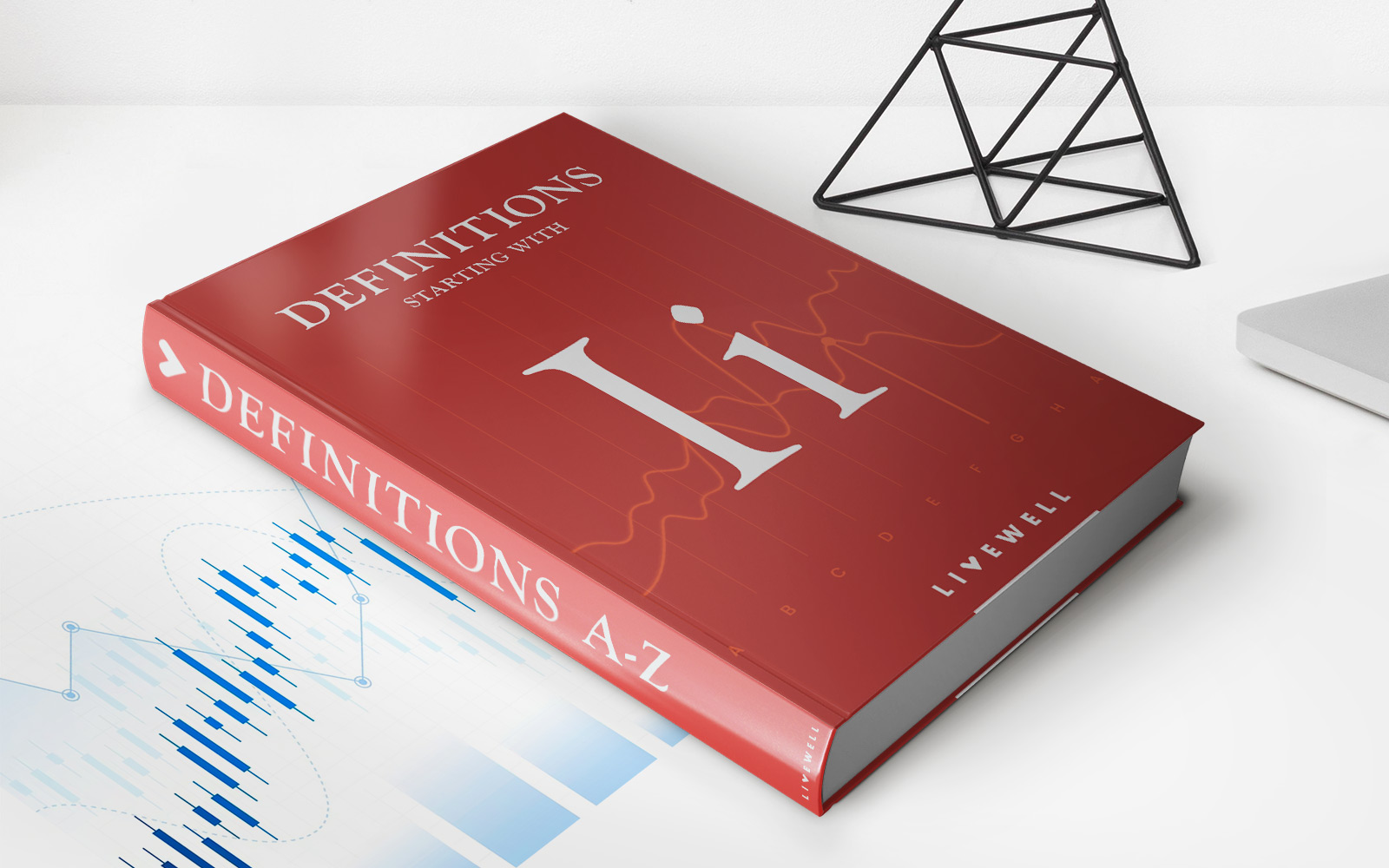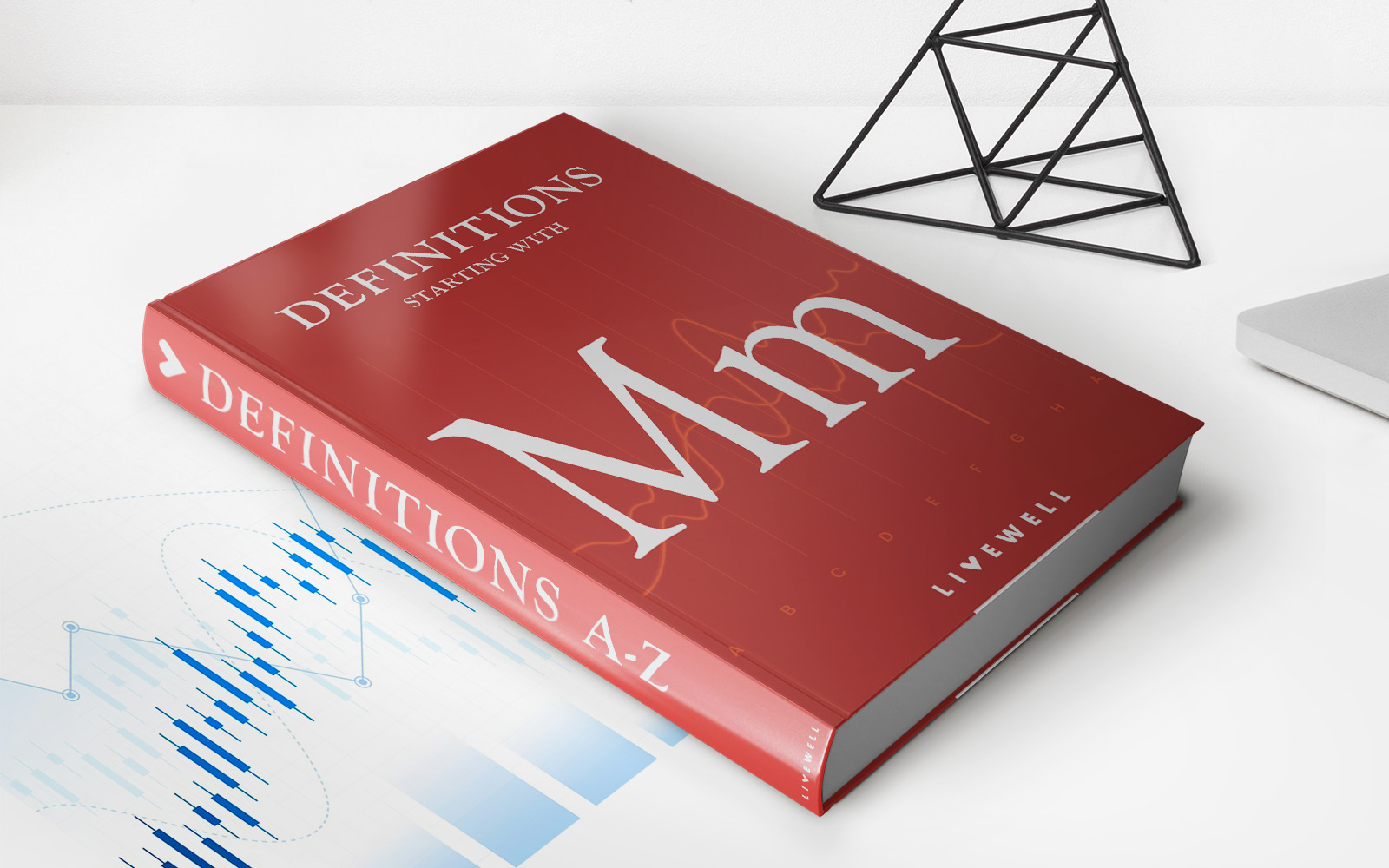

Finance
What Is Inheritance Tax Planning
Published: January 20, 2024
Learn about inheritance tax planning and its importance in managing your finances effectively. Explore strategies to minimize your tax liabilities and secure your financial future.
(Many of the links in this article redirect to a specific reviewed product. Your purchase of these products through affiliate links helps to generate commission for LiveWell, at no extra cost. Learn more)
Table of Contents
- Introduction
- Understanding Inheritance Tax
- Importance of Inheritance Tax Planning
- Basic Principles of Inheritance Tax Planning
- Strategies for Minimizing Inheritance Tax
- Utilizing Lifetime Gifts
- Implementing Trusts
- Taking Advantage of Business Property Relief
- Considering Agricultural Property Relief
- Reviewing Exemptions and Reliefs
- Seeking Professional Advice for Inheritance Tax Planning
- Conclusion
Introduction
Welcome to the world of inheritance tax planning! In this article, we will explore the intricacies of inheritance tax and how effective planning can help you manage and minimize your tax liabilities.
Dealing with inheritance tax can be a daunting task, as it involves understanding complex regulations and making strategic decisions. However, with the right knowledge and proper planning, you can ensure that your loved ones are protected and your hard-earned assets are preserved.
So, what exactly is inheritance tax? Inheritance tax is a tax imposed on the transfer of assets from one person to another after death. In many countries, including the United Kingdom and the United States, inheritance tax is levied on the estate of the deceased person, which includes property, money, investments, and possessions.
While inheritance tax rates vary between countries, it is generally regarded as a significant financial burden for the beneficiaries, as it can considerably reduce the value of the estate left behind. This is where inheritance tax planning comes into play. By strategically planning ahead, you can take advantage of various exemptions, reliefs, and legal loopholes to minimize the tax liability.
Effective inheritance tax planning is not about evading taxes or engaging in dubious practices. It is about making smart and informed decisions within the boundaries of the law. It is about understanding the available options and utilizing them to your advantage while ensuring that your loved ones are adequately provided for.
In the following sections, we will delve deeper into the various aspects of inheritance tax planning, including the basic principles, strategies for minimizing tax, and the importance of seeking professional advice. By the end of this article, you will have a solid understanding of inheritance tax planning and be equipped with the knowledge to make informed decisions regarding your estate.
Understanding Inheritance Tax
In order to effectively plan for inheritance tax, it is essential to have a clear understanding of how the tax works. Inheritance tax is a tax levied on the transfer of assets from one person to another after death.
In many countries, including the United Kingdom and the United States, inheritance tax is imposed on the estate of the deceased person. The estate includes all assets owned by the individual, such as property, money, investments, and personal possessions.
The tax is calculated based on the value of the estate, minus any applicable exemptions and reliefs. The exact tax rate varies between jurisdictions, but it is typically a percentage of the taxable estate.
It’s important to note that inheritance tax is typically paid by the beneficiaries of the estate, not by the estate itself. This means that the tax liability falls on the individuals who receive the assets rather than on the deceased person.
Inheritance tax laws can be complex, and they differ between countries. It’s important to consult with a professional tax advisor or estate planning attorney to understand the specific rules and regulations applicable to your situation.
Exemptions and thresholds also vary between jurisdictions. For example, in the United Kingdom, there is a threshold (known as the nil-rate band) which determines whether an estate is subject to inheritance tax. In the United States, there is a federal estate tax exemption amount that determines if an estate is subject to tax.
It’s worth noting that some jurisdictions may provide certain exemptions and reliefs to reduce the overall tax liability. These exemptions are typically applicable to specific types of assets, such as business property or agricultural land, and can help minimize the tax burden on the estate.
Understanding the basic concepts and principles of inheritance tax is crucial for effective planning. By being aware of how the tax is calculated, who is responsible for paying it, and what exemptions and reliefs may be available, you can take steps to minimize your tax liability and ensure that your assets are passed on to your chosen beneficiaries.
Importance of Inheritance Tax Planning
Inheritance tax planning is not just a concern for the wealthy; it is something that everyone should consider. Proper planning can have significant benefits, not only in terms of minimizing tax liabilities but also in ensuring the smooth transfer of assets to your loved ones. Let’s explore why inheritance tax planning is so important.
1. Minimizing Taxation: One of the primary reasons for inheritance tax planning is to minimize the tax burden on your estate. By taking advantage of available exemptions, reliefs, and legal strategies, you can reduce the amount of tax that your beneficiaries will have to pay. This ensures that more of your hard-earned assets are passed on to your loved ones, rather than being consumed by taxes.
2. Preserving Family Wealth: Inheritance tax planning allows you to preserve your family’s wealth for future generations. By effectively managing your estate, you can ensure that the assets you have worked hard to accumulate are efficiently transferred to your children, grandchildren, or other beneficiaries. This can provide financial stability and opportunities for your family in the long term.
3. Avoiding Financial Hardship: Inheritance tax can impose a significant financial burden on your loved ones, potentially forcing them to sell assets or incur substantial tax bills. By planning ahead, you can minimize this burden, ensuring that your beneficiaries are not faced with unexpected financial hardships and allowing them to maintain the lifestyle and financial security that you intended for them.
4. Protecting Business and Property Assets: For business owners and property owners, inheritance tax planning is particularly crucial. Without proper planning, the transfer of business assets or valuable properties can be subject to substantial tax liabilities, potentially jeopardizing the future of the business or forcing the sale of important assets. By implementing effective strategies, such as business property relief or utilizing trusts, you can safeguard these assets and ensure their smooth transition to the next generation.
5. Peace of Mind: Creating an inheritance tax plan provides you with peace of mind, knowing that your wishes will be carried out and your loved ones will be taken care of after your passing. By taking the time to consider and plan for the impact of inheritance tax, you can have confidence that your financial affairs are in order, reducing stress for both you and your beneficiaries.
Overall, inheritance tax planning is essential for anyone who wants to protect their assets and ensure that their loved ones are provided for in the future. By engaging in thoughtful planning and seeking professional advice, you can minimize tax liabilities, preserve family wealth, and provide peace of mind knowing that your estate will be distributed according to your wishes.
Basic Principles of Inheritance Tax Planning
Effective inheritance tax planning involves understanding and applying certain basic principles to ensure that your estate is transferred to your beneficiaries with minimal tax liability. Let’s explore some of these key principles.
1. Start Early: Inheritance tax planning is a long-term strategy, and it’s important to start planning as early as possible. By taking proactive steps early on, you have more options available and can potentially maximize the benefits of various tax planning strategies. Waiting until later stages in life may limit your options and lead to missed opportunities for tax savings.
2. Understand Applicable Laws and Regulations: Inheritance tax laws and regulations vary between countries and jurisdictions. It is crucial to have a clear understanding of the specific rules that apply to your situation. Some key considerations include tax rates, exemptions, allowances, thresholds, and available reliefs. Consulting with a tax advisor or estate planning professional is highly recommended to ensure compliance and maximize tax efficiency.
3. Consider Lifetime Gifts: Making lifetime gifts to your loved ones can be an effective way to reduce your taxable estate. Depending on the jurisdiction, certain gift allowances and exemptions may apply. By transferring assets during your lifetime, you can potentially minimize the value of your estate and reduce the overall inheritance tax liability. However, it’s important to consider the impact of such gifts on your own financial security and to seek professional advice to ensure that the gifting strategy aligns with your long-term goals.
4. Utilize Trusts: Trusts can be powerful tools for inheritance tax planning. By setting up a trust, you can transfer assets and have them held and managed by a trustee on behalf of your beneficiaries. Depending on the jurisdiction and the type of trust, certain tax advantages may apply, such as reducing the taxable value of your estate. Trusts also allow for greater control over how your assets are distributed and protected. Consult with a trust specialist or estate planning attorney to understand the different types of trusts and their tax implications.
5. Consider Business and Agricultural Relief: In certain jurisdictions, special reliefs may be available for business assets or agricultural property. These reliefs can help reduce or eliminate the inheritance tax liability on qualifying assets. Business property relief (BPR) and agricultural property relief (APR) are designed to protect family businesses and agricultural enterprises from excessive tax burdens. Consulting with a tax advisor who specializes in these areas can help you navigate the eligibility criteria and ensure that you maximize the benefits of these reliefs.
6. Regularly Review and Update Your Plan: Inheritance tax planning should not be a one-time event. It’s important to regularly review and update your plan as your financial circumstances and tax laws change. Changes in asset values, family dynamics, and tax legislation can all impact the effectiveness of your plan. By staying proactive and periodically reviewing your plan, you can ensure that it remains aligned with your goals and takes advantage of any new opportunities for tax savings.
By adhering to these basic principles and seeking professional advice, you can develop a comprehensive inheritance tax plan that minimizes tax liabilities, protects your assets, and ensures a smooth transfer of wealth to your beneficiaries.
Strategies for Minimizing Inheritance Tax
Minimizing inheritance tax requires careful planning and consideration of various strategies. By utilizing these strategies, you can reduce the tax liability on your estate and maximize the amount of wealth that is passed on to your beneficiaries. Let’s explore some effective strategies for minimizing inheritance tax.
1. Lifetime Gifts: One of the simplest and most common strategies for minimizing inheritance tax is making lifetime gifts to your loved ones. In many jurisdictions, there are specific gift allowances and exemptions that can be utilized to transfer assets without incurring a tax liability. By gifting assets during your lifetime, you can effectively reduce the value of your estate and therefore the overall tax liability. However, it’s important to be mindful of any gift tax rules and consult with a tax advisor to ensure compliance and optimize the timing and value of the gifts.
2. Utilizing Trusts: Trusts can be powerful tools for minimizing inheritance tax. By setting up a trust, you can transfer assets to the trust and have them managed by a trustee on behalf of your beneficiaries. Depending on the jurisdiction and the type of trust, certain tax advantages may apply. Trusts can help protect assets, provide for future generations, and potentially reduce the taxable value of your estate. Different types of trusts, such as discretionary trusts or life interest trusts, may be suitable for different situations. Consulting with a trust specialist or estate planning attorney is crucial to navigate the complexities of trust planning and ensure maximum tax efficiency.
3. Taking Advantage of Business Property Relief: Business Property Relief (BPR) is a valuable relief available in certain jurisdictions, such as the United Kingdom, that can help minimize inheritance tax on business assets. BPR allows for a significant reduction or complete exemption from inheritance tax on qualifying business property. This can be a powerful strategy for business owners who want to preserve their wealth and pass on their business to the next generation. However, specific conditions and rules apply, so it’s essential to seek professional advice to understand eligibility and maximize the benefits of this relief.
4. Considering Agricultural Property Relief: Similar to Business Property Relief, Agricultural Property Relief (APR) is a relief available in certain jurisdictions, such as the United Kingdom, for agricultural land and property. APR can provide significant tax reductions or exemptions for qualifying agricultural holdings. This relief is particularly important for farmers and agricultural business owners looking to pass on their land and assets to future generations. Expert advice should be sought to understand the eligibility criteria and to structure your estate and assets in a way that maximizes the benefits of this relief.
5. Reviewing Exemptions and Reliefs: In addition to business and agricultural reliefs, there may be other exemptions and reliefs available in your jurisdiction that can help minimize inheritance tax. These may include specific allowances for certain types of assets, such as artworks or personal belongings. It’s important to review and understand all the available exemptions and reliefs applicable to your situation. This will ensure that you can take full advantage of any tax breaks that may be available, ultimately reducing the tax liability on your estate.
Each jurisdiction has its own rules and regulations regarding inheritance tax planning. It is crucial to consult with a professional tax advisor or estate planning specialist who is well-versed in the specific laws of your country. They will be able to provide tailored guidance and strategies that are best suited to your individual circumstances, ensuring that you minimize your inheritance tax liability and protect your assets for future generations.
Utilizing Lifetime Gifts
One effective strategy for minimizing inheritance tax is to utilize lifetime gifts. By gifting assets during your lifetime, you can reduce the value of your estate, thereby decreasing the overall tax liability for your beneficiaries. Let’s explore how lifetime gifts can be utilized to minimize inheritance tax.
1. Gift Allowances: Many jurisdictions provide gift allowances that allow individuals to make tax-free gifts up to a certain threshold. By taking advantage of these allowances, you can transfer assets to your loved ones without incurring an immediate tax liability. It’s important to stay informed about the specific allowances and limits applicable in your jurisdiction, as they can vary from country to country. Consulting with a tax advisor can help you understand the specific rules and optimize the timing and value of your gifts.
2. Annual Exemptions: In addition to the general gift allowances, most jurisdictions offer annual exemptions that allow you to make tax-free gifts up to a certain amount each year. These exemptions enable you to give away a portion of your assets gradually over time, reducing their value in your estate and potentially minimizing the tax liability for your beneficiaries. It is important to note that exceeding the annual exemption may trigger tax consequences, so it’s essential to carefully consider the timing and value of your gifts to maximize tax efficiency.
3. Small Gifts: Some jurisdictions provide exemptions for small gifts, allowing you to give away small amounts of money or assets tax-free. These exemptions often have limits in terms of the value per gift and the number of gifts per year. By utilizing small gifts exemptions, you can pass on smaller assets without incurring tax implications. This is particularly useful for distributing sentimental items or smaller financial tokens to your loved ones.
4. Spousal Exemptions: In many jurisdictions, gifts between spouses are exempt from inheritance tax. This means that you can transfer assets to your spouse without incurring any tax liability, regardless of the value of the gift. By strategically using spousal exemptions, you can rearrange your assets to ensure that both you and your spouse benefit from any available tax-free allowances.
5. Planning for Long-Term Care: Another aspect to consider when utilizing lifetime gifts is planning for long-term care. In some jurisdictions, assets given away as gifts may still be considered part of your estate for inheritance tax purposes if you require long-term care within a certain time frame after making the gift. It’s important to take this into account when planning for potential healthcare needs and consulting with a financial advisor or eldercare specialist who can provide guidance on the implications of lifetime gifts in relation to long-term care.
Utilizing lifetime gifts as an inheritance tax planning strategy requires careful consideration of the applicable allowances, exemptions, and potential consequences. It’s crucial to consult with a tax advisor or estate planning professional who can provide personalized guidance based on your specific circumstances and jurisdiction. By effectively using lifetime gifts, you can gradually transfer assets to your loved ones, reduce your estate’s taxable value, and ultimately minimize the inheritance tax liability for your beneficiaries.
Implementing Trusts
Implementing trusts can be a powerful strategy for minimizing inheritance tax and ensuring the effective transfer of assets to your beneficiaries. Trusts provide a legal framework for managing and protecting assets, allowing you to have more control over how your wealth is distributed. Let’s explore how trusts can be utilized in inheritance tax planning.
1. Minimizing Taxable Estate: One of the primary benefits of using trusts for inheritance tax planning is the ability to reduce the taxable value of your estate. By transferring assets to a trust, you effectively remove them from your estate, potentially reducing the overall tax liability upon your death. The assets held in the trust are managed by a trustee, ensuring that they are preserved and distributed according to your wishes. This can be particularly beneficial if you have considerable assets or properties that may attract substantial inheritance tax.
2. Protecting Assets: Trusts also offer a way to protect your assets and ensure their safe transfer to your intended beneficiaries. With a trust in place, you can specify how and when the assets are distributed, providing a level of control and protection. This is especially useful if you have concerns about the financial maturity or responsibility of your beneficiaries. Trusts can prevent assets from being squandered, lost through divorce, or subject to other unforeseen circumstances that may jeopardize their intended use.
3. Managing Next-Generation Wealth: Trusts can play a vital role in managing wealth for future generations. By establishing a trust, you can create a structured plan for the distribution of assets to your children, grandchildren, or other beneficiaries over time. This can help ensure that wealth is passed down responsibly and in a manner that promotes financial stability and long-term growth. Trusts can be designed to provide ongoing financial support, educational funding, or other specific uses tailored to the needs of each beneficiary.
4. Tax Efficiency: Depending on the jurisdiction, certain types of trusts may offer specific tax advantages. For example, some jurisdictions provide tax benefits for certain types of charitable trusts or conservatorship trusts. By working with a tax advisor or estate planning professional, you can identify the most tax-efficient trust structures that align with your goals and potentially minimize the inheritance tax liability for your beneficiaries.
5. Flexibility and Customization: Trusts offer a high degree of flexibility and customizability. Depending on your needs and objectives, you can choose from various types of trusts, such as revocable trusts, irrevocable trusts, or discretionary trusts. You can also specify the terms and conditions under which the trust operates, including beneficiary provisions, trustee selection, and asset management guidelines. This level of customization allows you to tailor the trust to your specific circumstances and maximize its effectiveness in achieving your inheritance tax planning goals.
Implementing trusts in your inheritance tax planning requires careful consideration and expert advice. Consulting with a trust specialist or estate planning attorney is crucial to ensure that you choose the right type of trust and structure it properly to suit your needs. By utilizing trusts, you can not only minimize inheritance tax but also protect and manage your wealth for the benefit of future generations.
Taking Advantage of Business Property Relief
Business Property Relief (BPR) is a valuable tax relief that can significantly reduce or completely eliminate the inheritance tax liability on certain business assets. It is designed to protect family businesses and encourage the preservation of business assets for future generations. Let’s explore how you can take advantage of Business Property Relief in your inheritance tax planning.
1. Eligibility Criteria: To qualify for Business Property Relief, the assets must be considered ‘relevant business property.’ This typically includes shares or interests in a qualifying trading company, partnership interests, and assets used in a business. However, it’s important to note that not all businesses or assets will be eligible for BPR. Some assets, such as those held predominantly for investment purposes, may not qualify. Consulting with a tax advisor or estate planning professional is crucial in determining the eligibility of your specific business assets for BPR.
2. Ownership and Duration: BPR is typically applicable to assets that have been owned by the individual for a minimum period of time. This ownership requirement varies between jurisdictions. For example, in the United Kingdom, the ownership requirement is usually two years, while in other countries, the minimum ownership period may differ. It’s essential to understand the specific ownership and duration requirements for BPR eligibility in your jurisdiction.
3. Asset Valuation: The value of the assets eligible for BPR is typically considered as their market value for inheritance tax purposes. However, certain assets, such as unlisted shares or interests in unquoted companies, may qualify for a discounted valuation. This can lead to a significantly reduced tax liability, as the value of the assets is taken into account at a discounted rate. Engaging a qualified valuer who specializes in business assets can help ensure that the valuation is conducted accurately and in compliance with the relevant tax regulations.
4. Documentation and Record-Keeping: To successfully claim Business Property Relief, it is essential to keep detailed records and documentation supporting the eligibility of your business assets. This may include financial statements, corporate documents, partnership agreements, and any other relevant records. By maintaining proper documentation, you can demonstrate the ownership, use, and nature of the business assets, strengthening your claim for BPR and minimizing the risk of challenges from tax authorities.
5. Proper Estate and Succession Planning: Incorporating BPR into your estate and succession planning is crucial to maximize its benefits. By structuring your business assets and ownership in a way that aligns with BPR rules, you can mitigate the inheritance tax liability and ensure a smoother transition of the business to the next generation. This may involve considering aspects such as gifting shares, establishing a family trust, or arranging a comprehensive succession plan that takes advantage of BPR and other applicable tax reliefs.
6. Professional Advice: Given the complex nature of Business Property Relief and the rules surrounding it, seeking professional advice from a tax advisor or estate planning specialist is highly recommended. They can provide valuable guidance and expertise in determining the eligibility of your assets for BPR, structuring your estate to optimize the relief, and navigating any specific rules or requirements in your jurisdiction.
Taking advantage of Business Property Relief can lead to substantial tax savings for businesses and their owners. By consulting with professionals and carefully planning your estate, you can ensure that your business assets are protected from unnecessary inheritance tax, allowing you to pass on a viable and valuable business to the next generation.
Considering Agricultural Property Relief
Agricultural Property Relief (APR) is a tax relief available in certain jurisdictions that can significantly reduce or even eliminate the inheritance tax liability on agricultural property. It is designed to protect family farms and ensure the continuity of agricultural businesses for future generations. Let’s explore how you can consider Agricultural Property Relief in your inheritance tax planning.
1. Eligibility Criteria: Agricultural Property Relief applies to qualifying agricultural property. This may include agricultural land, buildings used for agricultural purposes, and assets used in farming operations. However, specific criteria and restrictions may vary between jurisdictions. For example, there may be requirements regarding the level of farming activity and the length of ownership. Consulting with a tax advisor or agricultural specialist is crucial to understanding the eligibility criteria and ensuring that your property meets the necessary qualifications.
2. Ownership and Occupation: For Agricultural Property Relief to apply, the property generally needs to be owned and occupied for agricultural purposes. This means that the land should be actively used and managed for agricultural activities, such as crop cultivation or livestock rearing. Demonstrating that the property is actively engaged in agricultural operations is essential when claiming APR. Keeping detailed records of farming activities, crop yields, livestock numbers, and any diversification projects can strengthen your case for eligibility.
3. Farming Partnerships: If you own agricultural property as part of a farming partnership, it’s important to consider the implications for APR. In some cases, APR may apply to your share of the partnership assets. However, specific rules may govern partnership structures and the eligibility for relief. Seeking advice from an agricultural specialist or tax advisor with experience in farming partnerships is essential to navigate the complexities and ensure that you maximize the benefits of APR.
4. Transition Planning: Agricultural Property Relief can play a crucial role in transition planning and the continuity of the family farming business. By considering APR in your estate planning, you can ensure that the agricultural assets can be passed on to the next generation without incurring a substantial inheritance tax liability. This is particularly important if you intend to keep the farm within the family and want to provide for the ongoing viability of the agricultural enterprise.
5. Valuation and Specialist Advice: Accurate valuation of agricultural assets is crucial when considering APR. Valuation rules may differ depending on the jurisdiction and the nature of the agricultural property. Engaging the services of a professional valuer with experience in agricultural assets can help ensure that the valuation is conducted appropriately and in compliance with tax regulations. Additionally, seeking advice from a tax advisor or estate planning specialist who understands the intricacies of agricultural property relief is essential to optimize the relief and minimize the inheritance tax liability.
6. Keeping Up with Changes in Legislation: Tax laws and regulations related to agricultural property relief may change over time. It is important to stay informed about any updates or amendments to the rules in your jurisdiction. Regularly reviewing your estate plan and seeking professional advice can help you adapt to any changes and ensure that your inheritance tax planning continues to align with the current legislation.
Considering Agricultural Property Relief can provide significant benefits for farmers and landowners, helping to secure the future of the agricultural business and minimize the burden of inheritance tax. By consulting with experts and incorporating APR into your estate planning, you can safeguard your agricultural assets and pass them on to the next generation in a tax-efficient manner.
Reviewing Exemptions and Reliefs
When it comes to minimizing inheritance tax, it’s crucial to review and understand the various exemptions and reliefs available in your jurisdiction. Exemptions and reliefs are designed to reduce the overall tax liability on your estate, allowing more of your assets to be passed on to your beneficiaries. Let’s explore the importance of reviewing exemptions and reliefs in your inheritance tax planning.
1. Exemptions: Exemptions are specific assets or circumstances that are excluded from the scope of inheritance tax. They can vary depending on your jurisdiction, but common exemptions may include assets held in certain types of trusts, assets donated to charities, or assets passed between spouses. Reviewing the exemptions applicable in your jurisdiction is essential to identify opportunities for reducing your inheritance tax liability. By understanding which assets or transfers are exempt, you can take advantage of the exemptions and potentially decrease the taxable value of your estate.
2. Reliefs: In addition to exemptions, there are various tax reliefs that can significantly reduce the inheritance tax liability on specific types of assets. Common reliefs may include Business Property Relief (BPR) for qualifying business assets, Agricultural Property Relief (APR) for agricultural property, or Heritage Property Relief for assets of historical or cultural significance. It’s important to review the reliefs available in your jurisdiction and assess their applicability to your estate. By taking advantage of reliefs, you can potentially eliminate or minimize the tax liability on specific assets, protecting and preserving your wealth for future generations.
3. Legislative Changes: Tax legislation is subject to change, and new exemptions or reliefs may be introduced over time. It is crucial to stay informed about any updates or amendments to the tax laws in your jurisdiction. Regularly reviewing the legislation ensures that you are aware of any new opportunities for tax savings. Consulting with a tax advisor or estate planning specialist can help you navigate these changes and ensure that your inheritance tax planning remains up to date and aligned with the current regulations.
4. Professional Advice: Inheritance tax planning can be complex, and the availability of exemptions and reliefs may vary depending on the jurisdiction and specific circumstances. Seeking professional advice from a tax specialist or estate planning professional is vital in reviewing exemptions and reliefs. They can provide guidance tailored to your situation, analyze the applicability of different exemptions and reliefs, and help you structure your estate to maximize the benefits of these provisions. Their expertise and knowledge of the current tax laws will ensure that you optimize your inheritance tax planning strategy.
5. Individual Circumstances: It’s worth noting that exemptions and reliefs may vary based on individual circumstances. Factors such as the size of your estate, the types of assets you own, and your family dynamics can influence the availability and utilization of exemptions and reliefs. By reviewing your individual circumstances, you can identify which exemptions and reliefs are applicable to your estate and tailor your inheritance tax planning accordingly.
By regularly reviewing the exemptions and reliefs available in your jurisdiction and seeking professional advice, you can identify opportunities to minimize your inheritance tax liability. Understanding the specific provisions, staying updated on legislative changes, and considering your individual circumstances will help you make informed decisions and optimize your estate plan to ensure the preservation of your assets for your beneficiaries.
Seeking Professional Advice for Inheritance Tax Planning
Inheritance tax planning can be complex and overwhelming, with various factors to consider and regulations to navigate. That is why it is crucial to seek professional advice from tax advisors, estate planning attorneys, or specialists who can provide expert guidance tailored to your specific situation. Let’s explore why seeking professional advice is essential for effective inheritance tax planning.
1. Knowledge and Expertise: Tax professionals who specialize in inheritance tax planning have extensive knowledge and expertise in the field. They stay up-to-date with the latest tax laws, exemptions, reliefs, and planning strategies, ensuring that you receive accurate and well-informed advice. Their deep understanding of the intricacies of inheritance tax can help you navigate complex rules and regulations, maximizing tax efficiency and minimizing potential pitfalls.
2. Customized Advice: Every individual’s situation is unique, and what works for one person may not be suitable for another. Professional advisors can assess your specific circumstances and provide personalized advice tailored to your needs and goals. They will consider factors such as the size of your estate, types of assets, family dynamics, and any business interests, to develop a comprehensive inheritance tax plan that aligns with your objectives.
3. Multidisciplinary Approach: Inheritance tax planning often goes hand in hand with other aspects of financial planning, such as estate planning, asset protection, and wealth management. Professional advisors who specialize in inheritance tax are typically well-versed in these related areas, allowing them to take a holistic approach to your financial situation. They can coordinate with other professionals, such as financial planners and attorneys, to ensure that all aspects of your financial and estate plan work together seamlessly.
4. Maximizing Tax Efficiency: The primary goal of inheritance tax planning is to minimize the tax liability on your estate. Professional advisors can help you identify and maximize the available exemptions, reliefs, and strategies that align with your goals. They can guide you in structuring your assets, utilizing trusts, making effective lifetime gifts, and taking advantage of business or agricultural property reliefs to achieve optimal tax efficiency.
5. Compliance and Risk Mitigation: Inheritance tax planning involves adherence to complex tax regulations. Professional advisors can ensure that your inheritance tax plan is compliant with the applicable laws, reducing the risk of non-compliance penalties and potential disputes with tax authorities. They can also help mitigate any potential risks associated with the chosen strategies, ensuring that your plan is structured in a way that minimizes legal and financial risks.
6. Long-Term Relationship: Inheritance tax planning is not a one-time event but an ongoing process that requires periodic review and adjustment. Building a long-term relationship with a professional advisor can provide continuous support and guidance throughout the various stages of your life. They can help you stay updated with changes in tax laws, adapt your plan to evolving circumstances, and provide advice during significant life events, such as marriage, divorce, or the birth of children.
Seeking professional advice ensures that you receive expert guidance, benefit from extensive knowledge and experience, and develop a comprehensive inheritance tax plan that aligns with your specific needs and goals. Remember to choose a reputable and qualified advisor with expertise in inheritance tax planning to make the most of their services and expertise.
Conclusion
Inheritance tax planning is a crucial aspect of managing your estate and ensuring the smooth transfer of assets to your loved ones. By taking proactive steps and seeking professional advice, you can minimize the tax liability on your estate and preserve your hard-earned assets for future generations.
Understanding the complexities of inheritance tax, along with the available exemptions, reliefs, and planning strategies, is essential. Starting the planning process early and reviewing your plan periodically allows you to optimize your strategy and take advantage of any changes in tax laws.
Key strategies for minimizing inheritance tax include making lifetime gifts, utilizing trusts, and considering specific exemptions and reliefs such as Business Property Relief and Agricultural Property Relief. Taking advantage of these opportunities can not only minimize tax liabilities but also provide asset protection, preserve family wealth, and ensure the continuity of businesses and agricultural enterprises.
However, effective inheritance tax planning goes beyond just financial considerations. It involves considering your family’s needs, ensuring a smooth transition of wealth, and providing for the long-term well-being of your beneficiaries. The expertise of tax advisors, estate planning attorneys, and professionals specializing in inheritance tax planning is invaluable in navigating through the intricacies of the tax laws and creating a robust plan.
In conclusion, inheritance tax planning is a proactive and strategic process that allows you to minimize tax liabilities, protect assets, and ensure that your loved ones are provided for in the future. By seeking professional advice, staying informed about the available exemptions and reliefs, and reviewing your plan regularly, you can create a comprehensive inheritance tax plan that aligns with your goals and safeguards your financial legacy.


